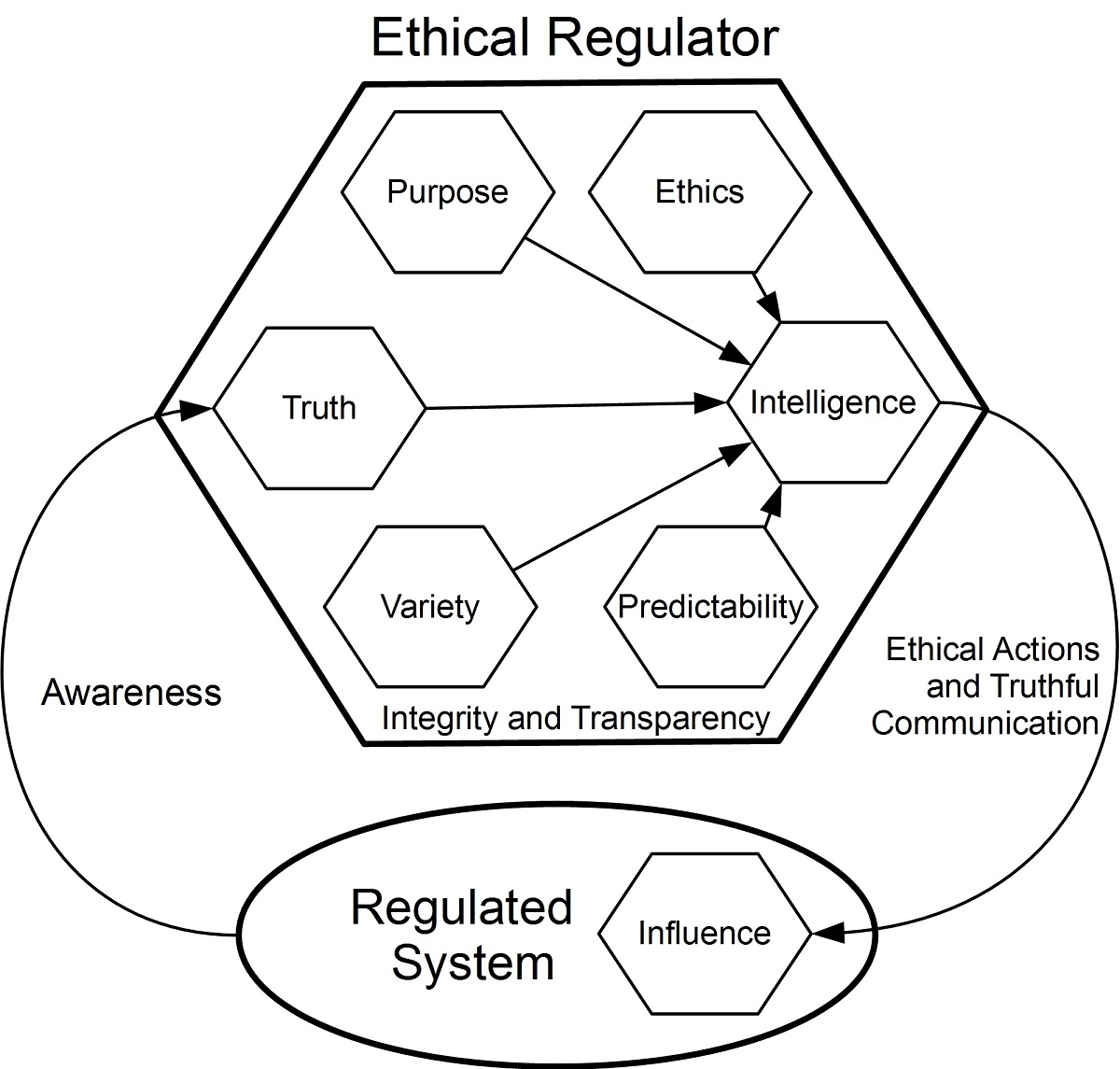This paper combines the Good Regulator Theorem with the Law of Requisite Variety and seven other requisites that are necessary and sufficient for a cybernetic regulator to be effective and ethical. The resulting Ethical Regulator Theorem provides a basis for systematically evaluating and improving the adequacy of existing or proposed designs for systems that make decisions that can have ethical consequences; regardless of whether the regulators are human, machines, cyberanthropic hybrids, organizations, corporations, or government institutions. The theorem is then used to define an ethical design process that has potentially far-reaching implications for society. A six-level framework is proposed for classifying cybernetic and superintelligent systems, which highlights the existence of a possibility-space bifurcation in our future time-line. The implementation of “super-ethical” systems is identified as an urgent imperative for humanity to avoid the danger that superintelligent machines might lead to a technological dystopia. Third-order cybernetics is defined as the cybernetics of ethical systems. Concrete actions, a grand challenge, and a vision of a super-ethical society are proposed to help steer the future of the human race and our wonderful planet towards a realistically achievable minimum viable cyberanthropic utopia.

